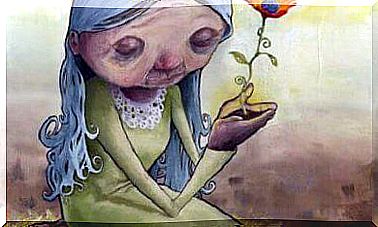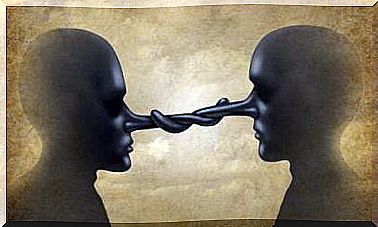Diplomatic People: 5 Characteristics

We often think that being too impulsive or “saying things to your face” necessarily imposes a kind of condemnation, that of being disrespectful. Nothing is further from reality: sincerity is not necessarily at odds with education. It has more to do with being able to send messages in a clear and polite, yet assertive way. That’s what diplomatic people do.
It is also true that the latter usually have a number of specific skills that allow them to do their jobs better and maintain healthier social relationships. But as we know, skills need to be trained! So if you want to develop these skills, take note.
Basic taxonomy of diplomatic people
To understand what diplomatic people are like, we took as a reference the personality traits that professionals who dedicate themselves to diplomacy (for example, ambassadors) tend to have. To this end, we will describe, according to the Big Five model of Costa and McRae, the stable factors that distinguish diplomats.

Openness to experience
Someone who is sent to a foreign country, in which he has to play a mediating role, must be curious and open. So it is assumed that he is willing to understand and that at times he has to adapt to the world around him, his people, his culture, his traditions … This requires him to be tolerant and respectful towards what will be his home for years.
This open-mindedness is the foundation upon which the rest of his skills are built. This position involves listening to opinions opposed to his and, more importantly, knowing how to use them in his favor. A prerogative can become an opportunity.
Taking into consideration the complaints, requests, needs of others can help improve. Not only in the relationship with their customers or staff, but with themselves. It helps to be more self-critical and understand how others think and how they are. Don’t be closed mentally, listen and learn.
Emotional stability
Costa and McRae define it as the opposite of neurosis. In diplomatic people it must be low or negligible. Imagine that there is an institutional crisis and that the people charged with resolving it are prone to let themselves be overwhelmed by emotions.
It would be a real mistake to leave in the hands of someone as unpredictable an activity with such an impact as mediation. It is advisable, and much safer, that a diplomatic character has a calm and peaceful character. Furthermore, this attitude is particularly useful in stressful situations or when making very important decisions.
Emotional stability in itself enhances diplomacy itself. Keeping calm in daily life accentuates our analytical and strategic ability. Knowing how to stay calm in situations of high pressure or responsibility makes all the difference. This does not mean that at any given moment we cannot feel anger or frustration, the secret is knowing how to control them.
Responsibility
Clearly diplomatic people have a very high sense of duty. To achieve satisfactory results, it is necessary to have self-discipline and order. However, this cannot turn into stiffness or stubbornness, because we know that to be a good negotiator, on many occasions, one has to be broad-minded.
The more rigorous and faithful you are to yourself, the greater your credibility and reliability. We think of a member of our family. Who would you entrust with a very important task for you? To a person who proves to be responsible in his daily life or to someone who is not at all reliable?

Kindness
To practice this profession, friendliness – good character – is one of the basic traits. And not only because of the empathy and cooperation that are required in an intercultural environment, but because the contacts of a diplomat are essential for him.
Making the people in your context feel happy, appreciated and understood is very important for the proper conduct of your work. Kind people usually have a solid intimate circle based on trust and respect.
This is one of the key factors for diplomatic people. And it’s not just about pleasing people. It doesn’t mean being false or trying to always say what the other person wants to hear. It is based on the attempt to maintain coherence between thoughts / values and behaviors without hurting the people around us and who have opposing points of view. In other words, being able to make observations without hurting the sensibilities of others.
Extroversion
Although it is closely linked with openness to experience, they cannot be considered synonymous. Extroversion refers more to a person’s tendency to want to relate to others. In the case of a diplomat, this quality is paramount.
Someone with responsibility must be assertive, talkative, outgoing and energetic. They have to manage communication skills and feel comfortable exchanging their views. If he withdraws or is shy, many aspects of his job will require an effort that will eventually exhaust him.
L and diplomatic people have a personality prone to dialogue, decisive, negotiator, extroverted. They are charismatic, they are willing to know the world, they are emotionally stable, lovable and very responsible. And do you fit into this profile or do you know someone who is like that?









